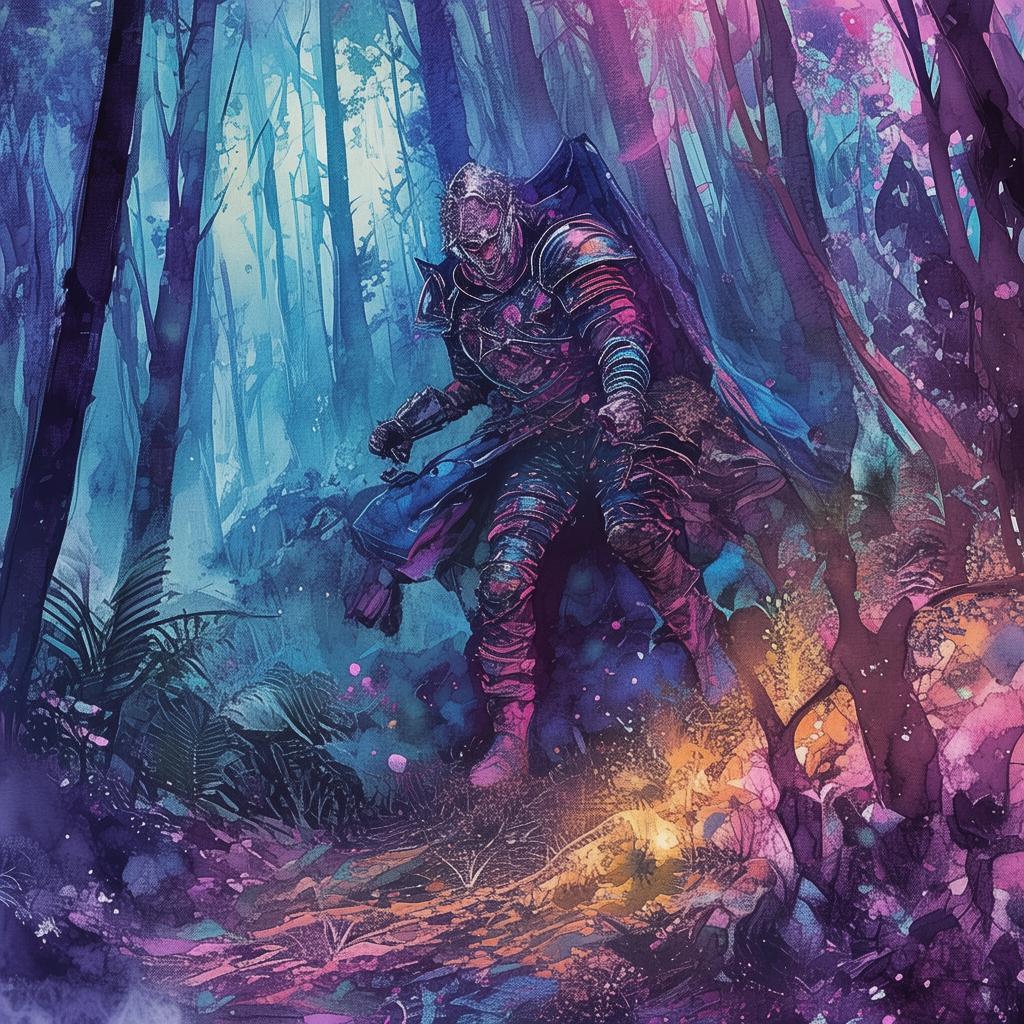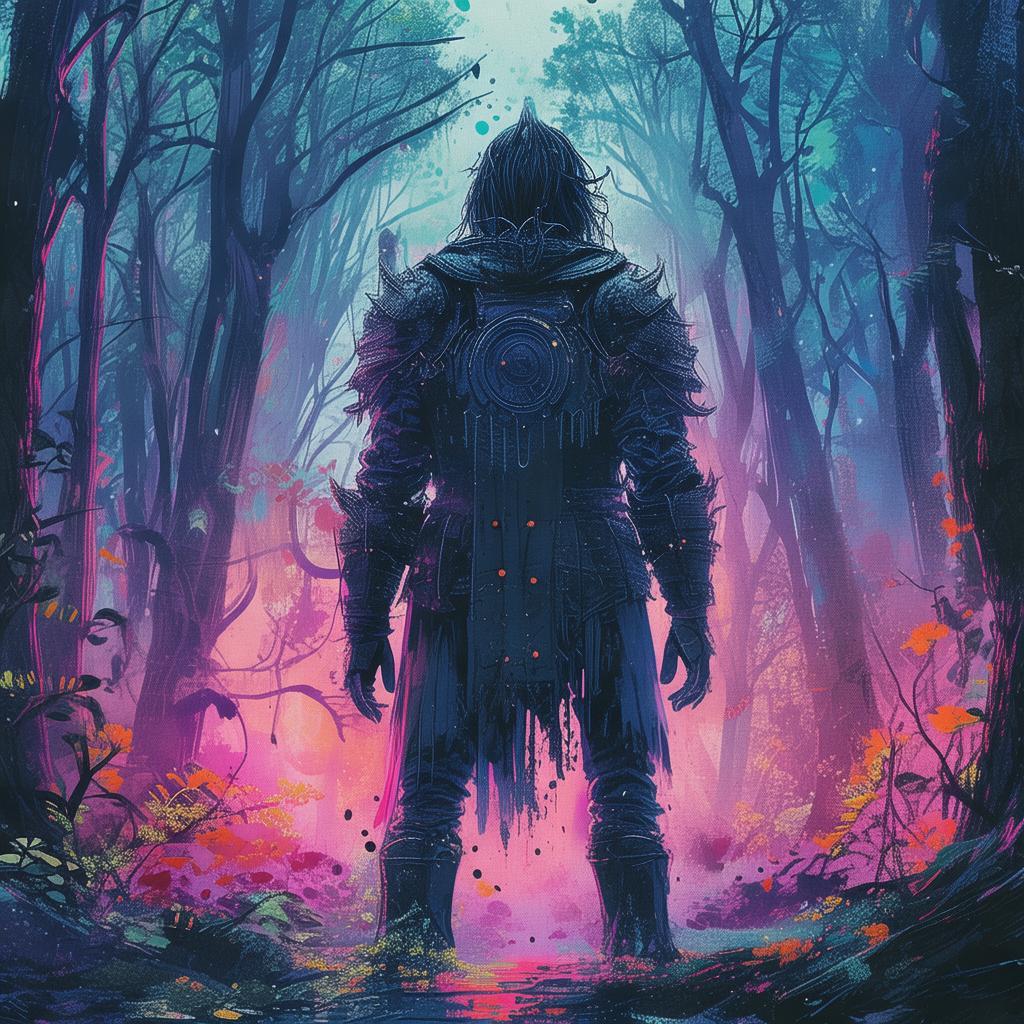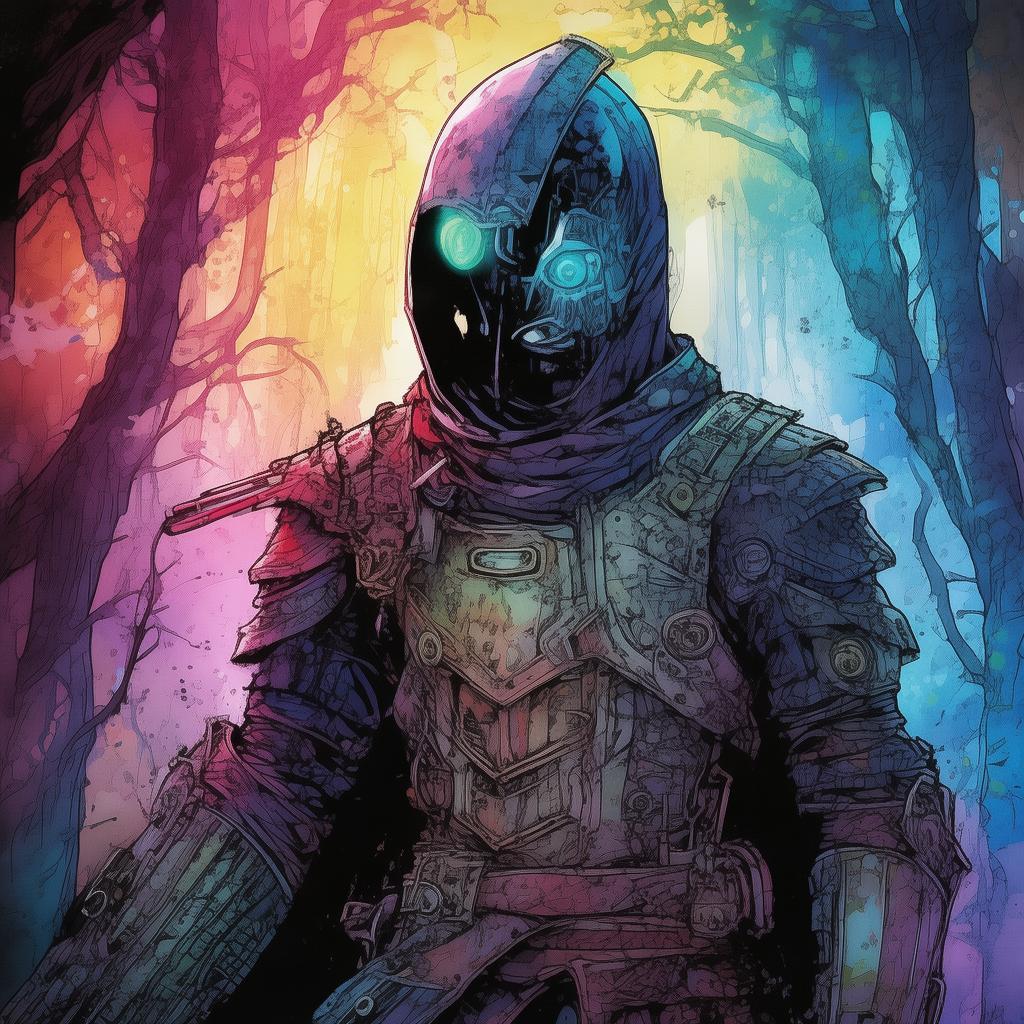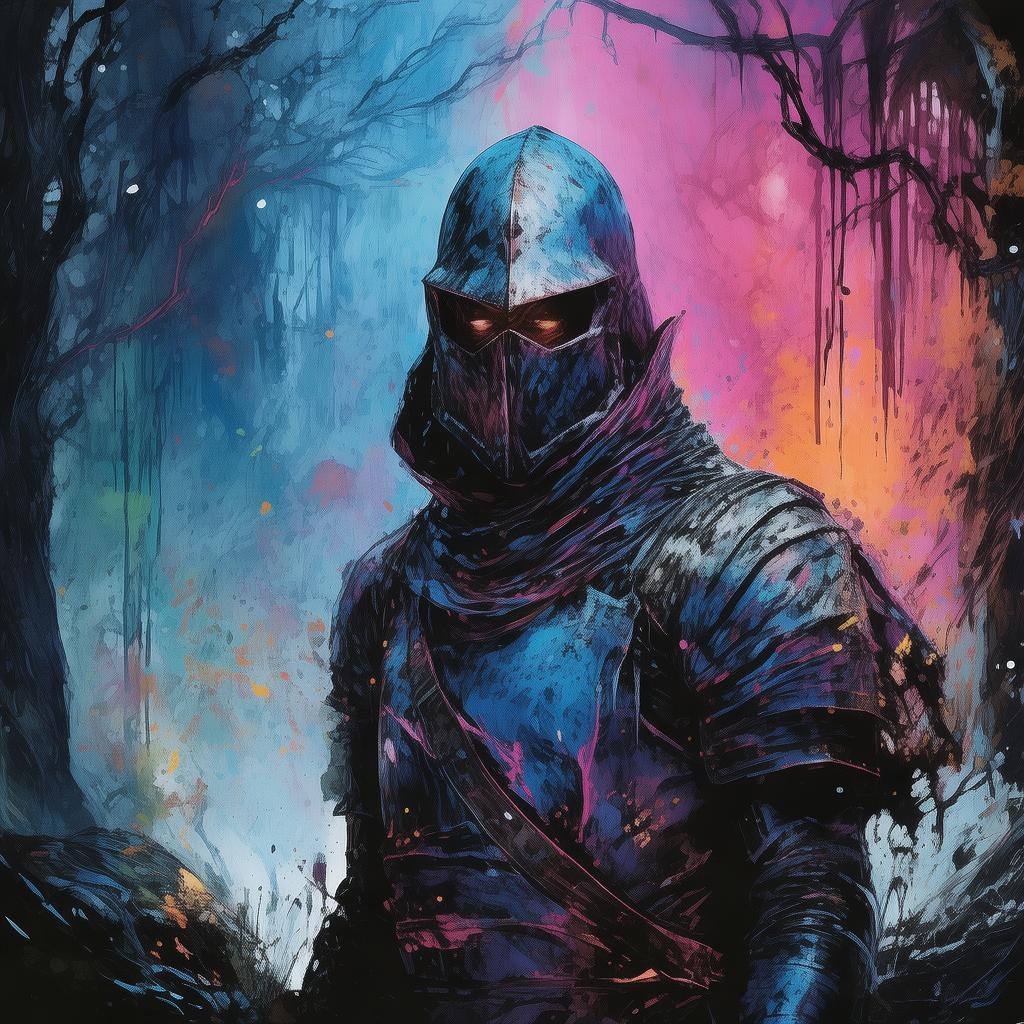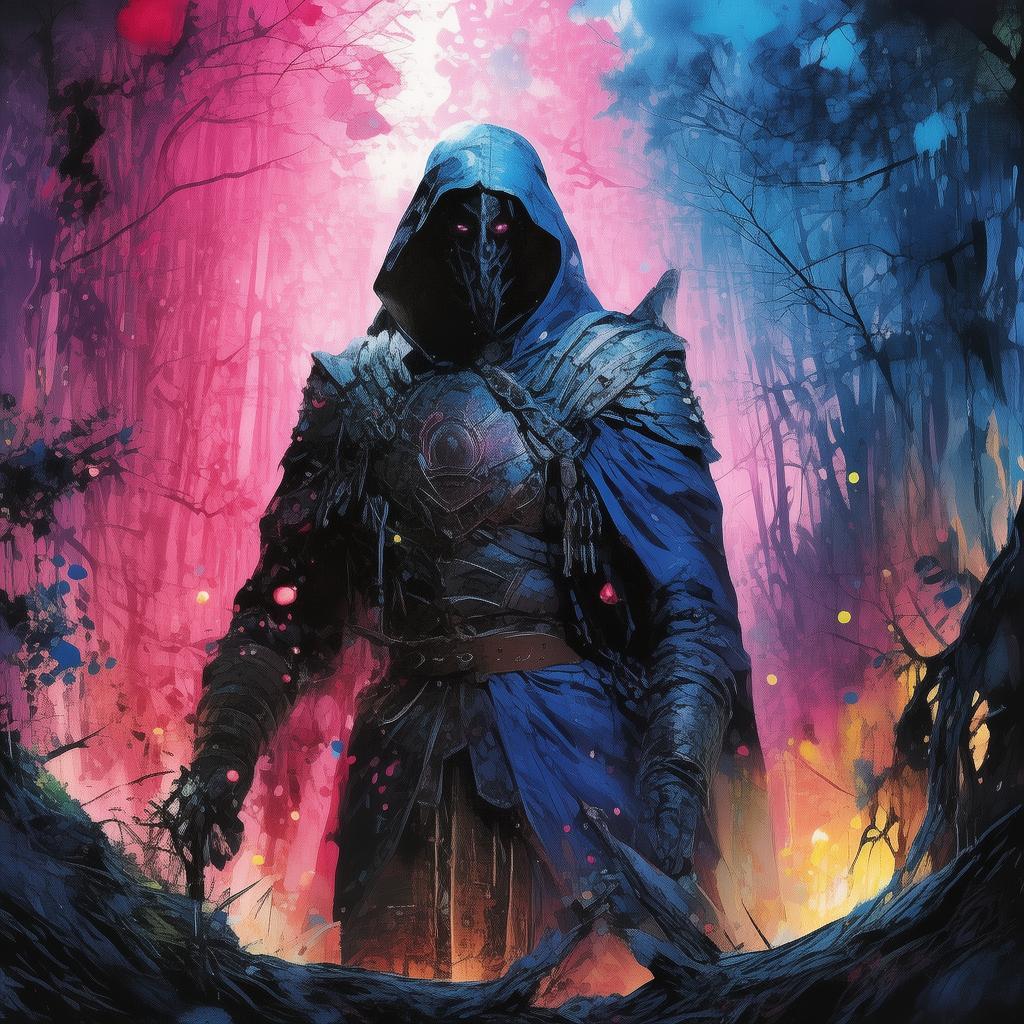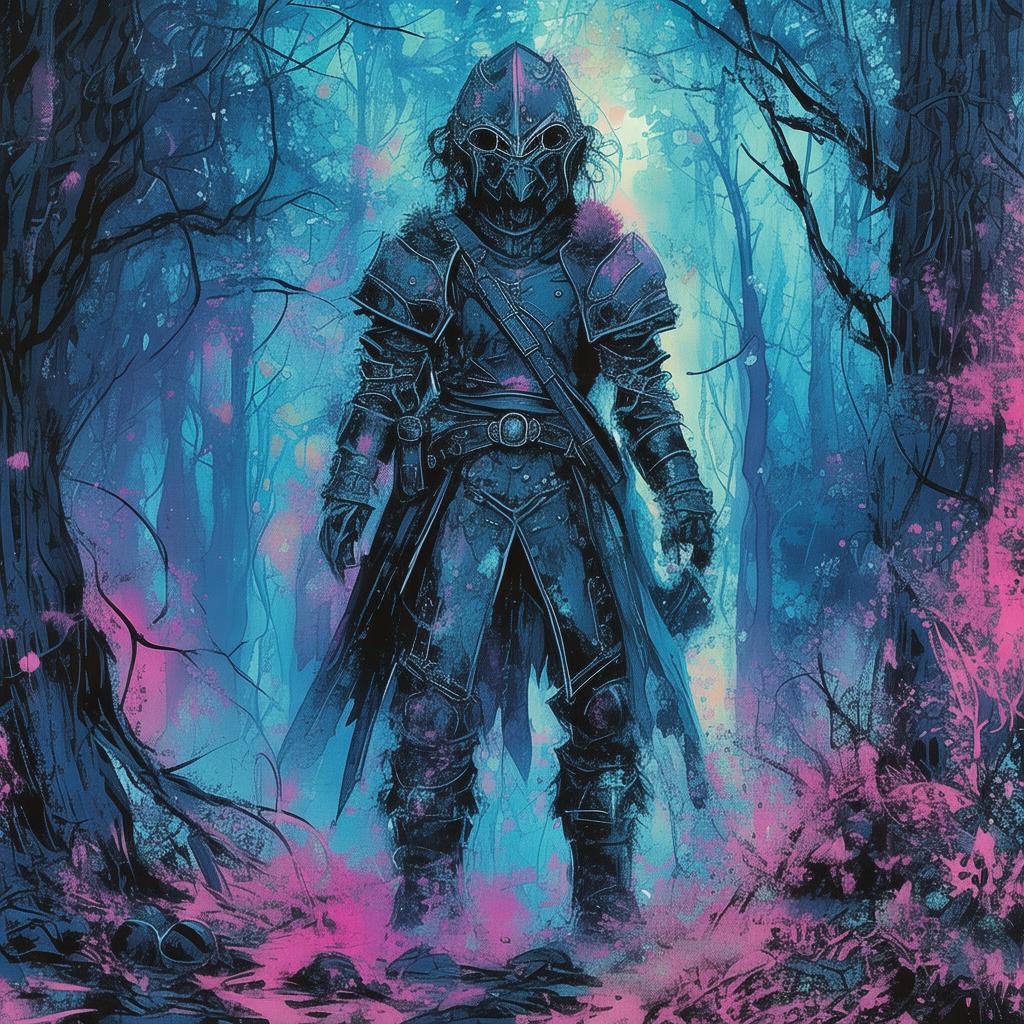The Echoes of a Sinister Hoofprint
In the heart of the ancient kingdom of Eldoria, where the wind whispered secrets of the past and the moon held court over a land that knew no bounds, there lived a horse of legend. His name was Seraph, and his coat was a tapestry of silver and black, shimmering like the scales of a mythical dragon. Seraph was no ordinary steed; he was the embodiment of a paradox that had plagued the kingdom for centuries—the Butcher's Paradox.
The Paradox spoke of a time when a butcher, with a heart as black as his trade, would sacrifice a horse each year at the Solstice, believing it would ensure the prosperity and peace of Eldoria. But the sacrifice was never to be taken lightly. For it was said that the horse chosen would dance with a sinister grace, foretelling the doom of the kingdom if the sacrifice was not made.
The tale of Seraph's birth was shrouded in mystery. He came into the world on the eve of the Solstice, a colt of extraordinary beauty and intelligence. His eyes, like twin moons, seemed to hold the secrets of the universe, and his hooves, when set upon the ground, left no mark—only an echo that resonated with the soul of the beholder.
As he grew, Seraph became the kingdom's pride, a symbol of hope and resilience. The villagers spoke of him in hushed tones, recounting tales of his supernatural abilities and his mysterious connection to the Paradox. Yet, even as he became a legend, the Paradox loomed over him like a shadow, ever present in the hearts and minds of the people.
The night of the Solstice arrived, and the king, a man of great wisdom but faltering courage, knew that he must choose between tradition and the welfare of his people. The court was in an uproar, with some demanding the sacrifice to be made, and others pleading for a reprieve.
The king turned to his closest advisor, a wise woman named Elara, who had spent a lifetime studying the ancient texts and the mysteries of the Paradox. "Elara," he said, his voice heavy with the weight of his decision, "what is our fate if we do not make the sacrifice?"
Elara's eyes, deep and knowing, met his. "Sire, the Paradox is a riddle wrapped in an enigma. But perhaps the answer lies not in the sacrifice, but in the understanding of the horse itself."
The king, though still uncertain, decided to defer the decision. He sent for Seraph, and as the horse approached, the king felt a strange sensation—a connection, as if Seraph were the key to unlocking the Paradox.
"You are more than a horse," the king said, his voice trembling with emotion. "You are a bridge between the realms of man and beast, a messenger of fate."
Seraph raised his head, his eyes reflecting the moonlight. In that moment, the king knew he had to trust the horse. He called for his sword, and with a deep breath, he began to dance around Seraph, his blade drawn and his heart heavy.
As the king danced, the horse danced with him, his movements fluid and precise, yet filled with an undercurrent of darkness. The villagers watched in awe and horror, as the dance seemed to twist the very fabric of time and space.
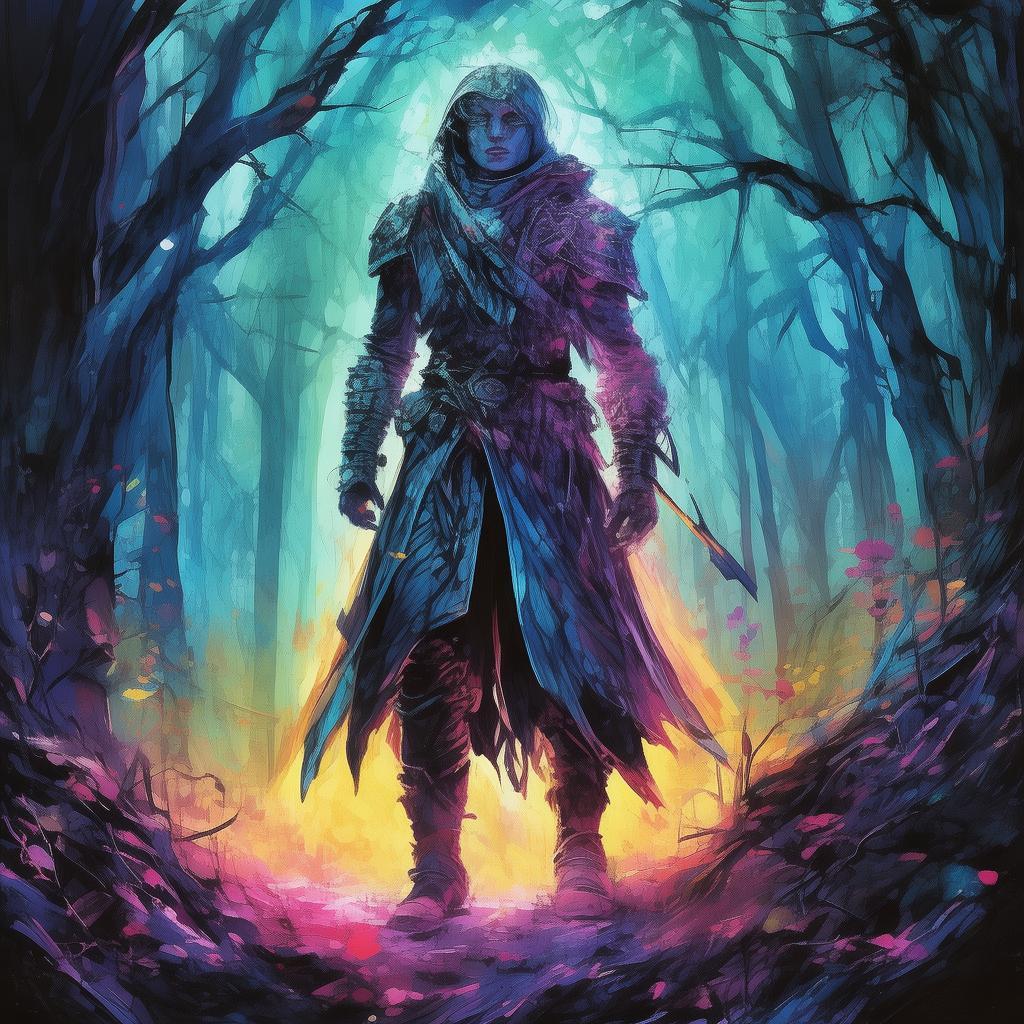
And then, as suddenly as it had begun, the dance ended. The king collapsed to the ground, his blade sheathed but still glistening with the blood of his sacrifice. Seraph, however, remained standing, his eyes now void of life.
The villagers, though filled with sorrow, knew that the Paradox had been fulfilled. And as the first rays of dawn pierced the sky, a new legend was born—the legend of Seraph, the horse who danced with fate and the Butcher's Paradox.
Years passed, and the kingdom of Eldoria flourished. The people spoke of Seraph, not as a sacrifice, but as a hero, a protector who had shown them the true nature of the Paradox. They said that when the Solstice came, the wind would carry the echoes of Seraph's hoofprints across the land, a reminder of the balance between life and death, hope and despair.
And so, the legend of Seraph lived on, a testament to the power of trust and the courage to defy tradition. For in the end, it was not the horse that danced with sinister grace, but the man who had the wisdom to see beyond the shadows and embrace the paradox that was life itself.
✨ Original Statement ✨
All articles published on this website (including but not limited to text, images, videos, and other content) are original or authorized for reposting and are protected by relevant laws. Without the explicit written permission of this website, no individual or organization may copy, modify, repost, or use the content for commercial purposes.
If you need to quote or cooperate, please contact this site for authorization. We reserve the right to pursue legal responsibility for any unauthorized use.
Hereby declared.

